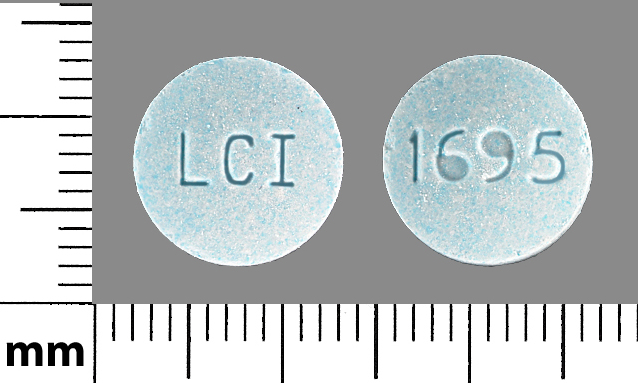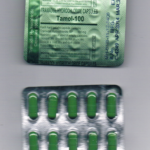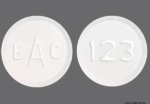
- Acetaminophen is a pain reliever, and it also acts as a fever reducer
- Butalbital is a barbiturate that can help relax muscles which often lead to tension headaches
- Caffeine is included in Fioricet because it stimulates the central nervous system and helps improve blood flood through the blood vessels
Some Fioricet may also contain codeine, so it contains both butalbital and another potentially addictive narcotic.
There are certain people who are advised against taking Fioricet. These people include anyone who has a history of liver disease or cirrhosis, people who drink more than three alcoholic beverages a day, and people with a history of substance abuse. It’s also not intended for use in people with kidney disease, breathing disorders, or a history of suicidal thoughts or mental illness.
Some of the potential side effects of Fioricet include:
- Drowsiness
- Dizziness
- Feeling restless or anxious
- Feeling drunk or intoxicated
- Sleep problems
The more severe side effects that can occur with Fioricet include confusion, seizures, shortness of breath, nausea, upper stomach pain, or jaundice.
So is Fioricet addictive? The answer is yes, which will be detailed below. With that in mind, the prescribing of Fioricet is intended to be a last resort for migraine sufferers. Doctors are advised to exhaust all other possible routes of treatment before prescribing this addictive, habit-forming drug.
Is Fioricet Addictive?
NO. Fioricet is not addictive. You need take 40 tab fioricet per day if you are addictive to Fioricet. The butalbital in Fioricet belongs to a class of drugs called barbiturates, a central nervous system depressant. Like other barbiturates, it has the potential to cause physical and psychological dependence, which can lead to abuse. But we do not think taking Fioricet can cause addiction because the addiction dosage of barbiturate is 1500mg per day which will exhaust 30 tablet fioricet (Around 10,000 mg acetaminophen ). 30 tablet of fioricet with 10,000mg of acetaminophen will kill an adult. The Max dosage of Fioricet is six tablets so it is safe and no addiction concerns.
But some websites say fioricet may get you high . The belief is that the Fioricet high is caused by the fact that butalbital can increase the inhibition neurotransmitters in the brain called GABA. It can bind to certain receptor sites and ultimately central nervous system activity is depressed. This can lead to what feels like a buzz or to some people possibly a high.
Fioricet Dependence
Fioricet cannot cause addiction, but it can cause dependence. The first sign of possible Fioricet dependence is when a person notices that their regular dose does not help their headache. People begin increasing their dose, until they are able to achieve the same effects they have experienced in the past. Prolonged use of Fioricet will build a person’s tolerance to it; this means they will need larger doses to achieve the same results.
When a person is dependency on Fioricet, he experiences withdrawal symptoms when the dose is suddenly stopped or decreased. If you are suffering from nausea, delirium, anxiety, convulsions, and hallucinations, contact your doctor immediately. These, according to the FDA, appear within 16 hours after the last dose. People who are withdrawing from the drug also feel emotional, depressed, anxious, and irritable. Some have hypertension, depression of the respiratory system, and confusion.
Psychological symptoms of dependence are usually more powerful than the physical, and are not as obvious to the person taking the Fioricet. However, others may notice that they have become obsessed or preoccupied with taking their medication. Prolonged Fioricet use will also make a person believe they are unable to function properly without it.
Never take your Fioricet overdose. If six tablet Fioricet cannot treat your headaches, please find a neighbor doctor or your family doctor and let them to check your health conditions and prescribe you new fioricet prescription.
So how do Fioricet abuse and Fioricet addiction occur?
When someone is addictive to Fioricet, it usually begins as tolerance. With a drug tolerance someone takes the substance for a period of time, and then their body becomes used to it, so they need continuously higher doses to get the same effects.
A tolerance can be developed for butalbital as well as codeine if it’s contained in Fioricet. There is research that shows the average barbiturate addict may need to take 1500 mg of the drug to feel the effects they want. Unfortunately, people who are addicted to Fioricet also often take other opioids and narcotics either to amplify the effects of the Fioricet or when they run out of it to achieve the same effect.
What are the signs of Fioricet addiction?
- One of the first outward signs of Fioricet addiction is often when people start doctor shopping, meaning they try to go to multiple doctors to get more of the drug.
- People may be taking more doses of Fioricet for the treatment of recurring headaches.
- You may have not only a physical dependence but also a Fioricet addiction if you start to experience symptoms of withdrawal when you stop taking it or take a lower dosage.
- People who are addicted to Fioricet may feel like they can’t function normally without it.
- When you’re addicted to Fioricet, you may be obsessed with finding it and taking it.
While all addictions to prescription drugs are worrisome, with Fioricet, there is not only the concern of being addicted to the butalbital, but there are the risks of the acetaminophen component of the drug. Acetaminophen can cause liver damage or failure when high amounts are taken, and it can be an acute situation where it happens very suddenly. It’s important for people who take Fioricet to be aware of this.
Acute liver failure can occur in doses of more than 4,000 mg in a day.
In addition to the dangers of acetaminophen, with Fioricet abuse, there is the risk of overdosing on butalbital as well. Butalbital can cause respiratory depression and excessive sedation, so Fioricet addiction is dangerous in multiple ways.
If you or someone you know may have a Fioricet abuse problem, it’s important to seek professional help, because it’s an addiction that can very easily be dangerous or deadly.
Barbiturates may be habit-forming: Tolerance, psychological dependence, and physical dependence may occur especially following prolonged use of high doses of barbiturates.

The average daily dose for the barbiturate addict is usually about 1500 mg. As tolerance to barbiturates develops, the amount needed to maintain the same level of intoxication increases; tolerance to a fatal dosage, however, does not increase more than two-fold. As this occurs, the margin between an intoxication dosage and fatal dosage becomes smaller.
The lethal dose of a barbiturate is far less if alcohol is also ingested. Major withdrawal symptoms (convulsions and delirium) may occur within 16 hours and last up to 5 days after abrupt cessation of these drugs. Intensity of withdrawal symptoms gradually declines over a period of approximately 15 days.
Treatment of barbiturate dependence consists of cautious and gradual withdrawal of the drug. Barbiturate-dependent patients can be withdrawn by using a number of different withdrawal regimens. One method involves initiating treatment at the patient’s regular dosage level and gradually decreasing the daily dosage as tolerated by the patient.
Pain Medications, Pain Relief, and Pain Management






